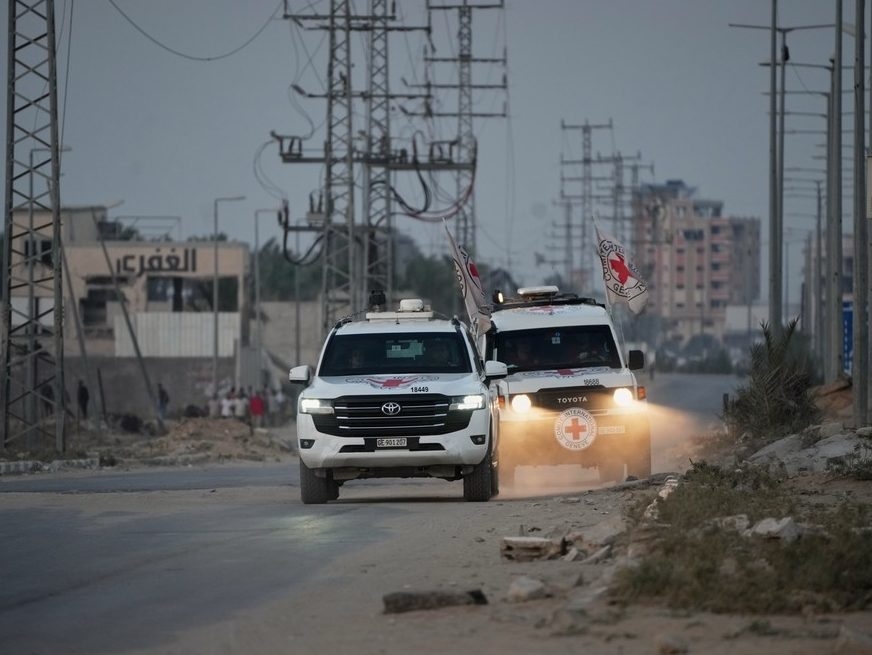A somber revelation emerged Saturday as Israeli authorities confirmed that remains recently returned by Hamas do not belong to any of the hostages still held captive. The handover, following Israel’s return of Palestinian bodies, had briefly ignited a flicker of hope amidst the ongoing conflict.
The three sets of unidentified remains were meticulously examined overnight, with early intelligence suggesting a disheartening truth. A military official, speaking anonymously, cautioned that the remains were unlikely to be those of the missing Israelis taken during the October 7th attack that ignited the war.
Hamas responded with a statement claiming they had offered to provide samples for identification but were refused by Israel, who instead requested the full remains for examination. The intention, according to Hamas, was to dispel Israeli accusations.

The identity of the returned remains remains a mystery, adding another layer of grief to an already devastating situation. Since the ceasefire began, militants have released the remains of seventeen hostages held for two years, but the pace of returning the remaining eleven has been agonizingly slow.
Meanwhile, Israel has returned 225 Palestinian bodies to Gaza, yet only 75 have been identified by grieving families. The circumstances surrounding these deaths – whether during the initial attack, in Israeli custody, or during the war itself – remain largely unknown.
The fragile truce faced a severe test earlier this week when Israeli strikes in Gaza resulted in over 100 fatalities, triggered by the death of an Israeli soldier and the incomplete return of hostages. The incident underscored the precarious nature of the agreement.
Jordan’s foreign minister issued a stark warning Saturday, stating that a continued Israeli military presence in Gaza jeopardizes the already tenuous ceasefire. He emphasized the critical need for a Palestinian police force to maintain security within the enclave, potentially supported by an internationally mandated force.
The possibility of an international stabilization force, initially proposed in a U.S. peace plan, is gaining traction. While several nations have expressed interest, all are awaiting a United Nations Security Council mandate before committing troops.
Indonesia, the world’s most populous Muslim nation, has emerged as a leading candidate to contribute to a peacekeeping force, offering thousands of personnel. However, Indonesian officials stress the necessity of a clear UN mandate and defined terms of reference.
Despite a commitment to contributing peacekeeping personnel, Indonesia insists on a UN Security Council resolution and emphasizes the need for a clear framework. Discussions are preliminary, and many details remain unresolved.
Indonesian officials have consistently advocated for an independent Palestinian state while simultaneously acknowledging the importance of guaranteeing Israel’s security, highlighting the complex diplomatic landscape surrounding the conflict.



